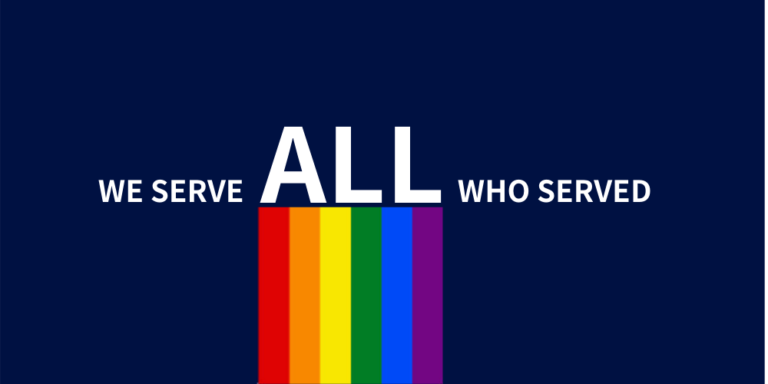

According to our Veterans Service Organization partners, there are an estimated 1 million Lesbian, Gay, Bisexual and Transgender (LGBT) Veterans in the U.S. Here at VBA, we remain dedicated to providing all Veterans, service members and their families with the benefits they have earned, regardless of sexual orientation. To help us better serve all who served, here are the answers to some of the most common questions we hear and what you can do to make a difference.
What benefits are available to LGBT Veterans?
We provide health care and benefits to all eligible Veterans, including those who identify as LGBT. VA recognizes all same-sex marriages without regard to where Veterans live. All Veterans in same-sex marriages who believe they are eligible for VA benefits should apply. Those denied claims based on prior guidance should re-apply for benefits.
Benefits for dependents and survivors, such as Survivor’s Pension, home loans and more, are also available. In addition, Veterans can select beneficiaries for a variety of benefits, regardless of sexual orientation. These benefits include:
LGBT Veteran Care Coordinators are also available at every VA health care facility to help Veterans navigate available services. More information on health care services is available at VA.gov.
How can Veterans upgrade their Character of Discharge?
Another common question centers around how Veterans can get their DD214 upgraded, making them eligible for benefits and services. The specific process for updating a discharge varies depending on a Veteran’s circumstances. VA’s Character of Discharge wizard allows Veterans to answer a simple set of questions to get step-by-step instructions.
What can I do to help ease Veterans’ concerns?
We want to alleviate any fears or concerns some LGBT Veterans may have when seeking assistance from VA and at all our VBA facilities. To ensure that we continue to provide world-class customer service to all Veterans, it is our duty to report any incidents of harassment, poor treatment or discrimination immediately. We must also refrain from making assumptions, use inclusive language, and remember that words mean different things to different people. Check out the Parents and Friends of Lesbian and Gays (PFLAG) National Glossary of Terms for evolving vocabulary and definitions.
Where can I get more information?
For more information, check out the Diversity and Inclusion training available from the Office of Resolution, Management, Diversity, and Inclusion.
Angela Childers-Conner is a marketing and communications specialist with VBA’s Office of Strategic Engagement.